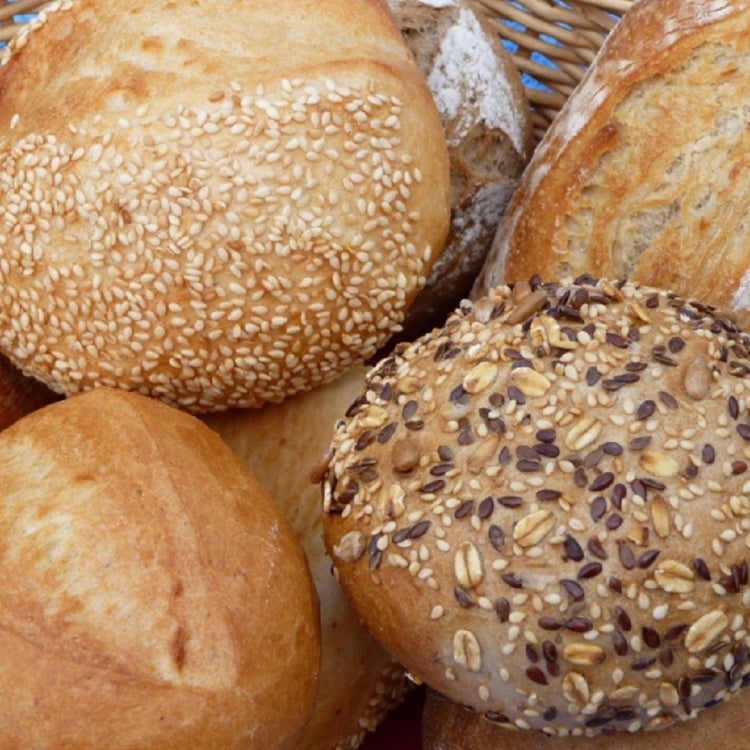The Skinny on Carbs: Five Rules You Should Break

There’s plenty of evidence that carbohydrates are essential to brain function as well as strength and conditioning. But anyone who’s tried to lose weight knows there are plenty of experts and diets telling you to shun carbs entirely, and just as many telling you to eat them, with a side of rules: eat these carbs but not those, cook them this way but not that way, and eat them at this time or don’t eat them after that time.
Breakfast can be especially challenging, with many advocates for loading up on carbs in the morning, some arguing that any breakfast – even a donut – is better than nothing, and others advising that it’s okay to skip a morning meal if you just can’t face food first thing. So we asked James LaValle, a clinical pharmacist, board-certified nutritionist and author of “Cracking the Metabolic Code” to give us the skinny on “rules” about carbs, and some of his insights might surprise you.
- There’s a universal baseline or limit for carb consumption. Not true. LaValle says there’s no one solution: what your body does with carbohydrates depends on your individual metabolism. “The Mediterranean diet that’s been promoted for health benefits – including weight loss – doesn’t work for everyone.” So, it’s about finding the amount of carbohydrates that works for you. Start by totaling the current amount you typically eat and cut it in half or eat one-third of your typical amount.
- The best time to eat carbs is in the morning, so that you’re (fueled up for the day) (burning them off all day). Not true “Your body releases cortisol in the morning – that’s the hormone that keeps blood sugar elevated, and it’s part of everyone’s morning metabolic cycle,” LaValle says. “You need that blood sugar because you’re waking up.”But stoking the fire with more carbohydrates doesn’t mean you’ve got energy to last the day. LaValle explains, “With elevated cortisol, your body’s not as efficient at assimilating more carbohydrates, which is why that big bowl of oatmeal with blueberries and brown sugar lets you down around 10 a.m., and you’re tired and hungry again.” Your best bet for sustained energy? An egg or a turkey patty, because protein metabolism releases neurochemicals that will keep you feeling satisfied, longer. If you do eat carbs in the morning, make them lower-glycemic versions, control the portion and always balance them with a high protein food.
- The secret to managing and losing weight is counting carbs. Not entirely true. It’s important to count unhealthy (high-glycemic-impact) carbs. Of course the worst carbs are white bread, sweetened drinks and desserts, but even more nutrient-dense foods like whole grains and fruits can elevate blood glucose for quite some time after meals, so portions of these foods needs to be controlled to better control weight and blood glucose. Non-starchy vegetables and greens contain much smaller amounts of carbs and are extremely nutrient-dense. With benefits like helping insulin sensitivity, helping to alkalinize the body, and helping mood, these are the carbs that you want to eat.
- The fastest way to lose weight is to cut carbs entirely. Not true. “High-protein and protein-only diets may give some people quick results, but they just aren’t sustainable,” and not just because they’re so restrictive, LaValle says. “Your brain isn’t getting the fuel it needs, so it’s no wonder that you begin to crave carbs. You’re also messing with your insulin receptors (by way of beneficial flora in the gut that need resistant starches) when you eliminate carbohydrates entirely, and that can lead to weight gain.”
- Eating carbs at night is a sure-fire way to pack on the pounds. Not entirely true. LaValle cites a study of policemen who were on a restricted-calorie diet but ate carbs at different times. Although they all consumed 1,300 to 1,500 calories per day, the group who skipped grain-based carbs during the day and had a couple servings in the evening lost more weight and more fat, and didn’t feel as hungry thanks to the chemical effect of balancing leptin, the hormone that makes you feel satisfied. So while total carbs need to be controlled, the timing of eating them in the evening seems to work best.Going for your morning bike ride? Then don’t skip the carbs. LaValle suggests some starch and a little protein will do you good – and to maximize the fat-burning effect, you can follow up with a recovery drink that’s low-calorie and wait an hour or so to eat.